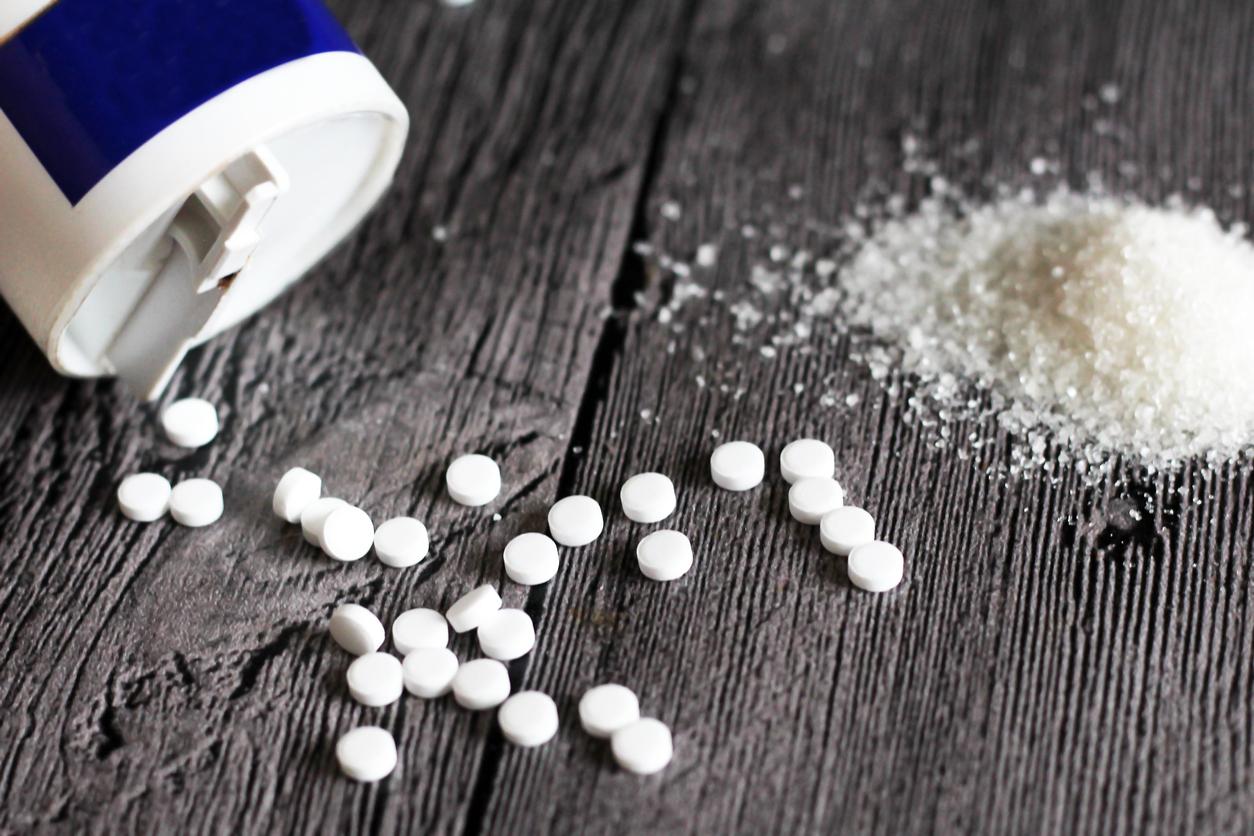Aspartame is the most well-known and controversial sweetener. In a report, the European Food Safety Agency declares it safe for health.

This question has been asked for a few years: is aspartame bad for your health? No, if we believe the answer of theEuropean Food Safety Authority (EFSA). She concluded her full assessment of the risks associated with this famous sweetener: current levels of exposure are safe, she says. To reach these conclusions, EFSA carried out a comprehensive review of the available scientific literature: 112 studies in total, and 200 comments. Both animal and human research were taken into account.
No increased risk of cancer
The evaluation of aspartame confirms the acceptable daily intake (ADI) established at 40 mg / kg of body weight. At this level of exposure, there is no danger to the health of healthy patients. Different potential risks were mentioned, the experts largely rejected them: the sweetener has no negative effects on the genes, the brain or the nervous system. It does not pose an increased risk of cancer, behavioral disorders or cognitive functioning nor a risk for the development of the fetus in pregnant women.
EFSA, however, draws the attention of patients with phenylketonuria medical disorder (PKU): they should follow a diet low in phenylalanine, an amino acid found in proteins and aspartame. A single doubt is not raised: that concerning the increased risk of developing diabetes, raised last February by the Institute of Health and Medical Research (Inserm).
Safe degradation products
The degradation of aspartame in the intestine is complete and very rapid, underlines the EFSA report. Any adverse effect reported after ingestion must therefore be compared to one or more of the degradation products associated with aspartame. But these degradation products themselves are safe, experts say. These are phenylalanine, methanol and aspartic acid. EFSA also points out that these products are naturally present in other foods. Methanol, for example, is found in fruits and vegetables.
Phenylalanine, an amino acid found in proteins, is only toxic at high levels of consumption. The same is true for methanol. The levels present in aspartame are not enough to cause side effects, concludes EFSA. Aspartic acid, a neurotoxic high dose, is also present in proteins. But its neurotoxicity is not proven in aspartame.
“This opinion represents one of the most comprehensive assessments of the risks associated with aspartame ever undertaken,” said Dr Alicja Mortenstern, Chairman of EFSA’s Panel on Food Additives and Sources of Nutrients Added to Food. . “This is a step forward that will help strengthen consumer confidence in the scientific foundations that underpin the European Union’s food safety system and the regulation of food additives.”
A statement to be taken with caution, however: on October 23, the Industrial Europe Observatory revealed that a majority of EFSA experts have a conflict of interest with the commercial sector. In particular, he denounced numerous conflicts of interest in the “Dietetic products, nutrition and allergies” group.
.















